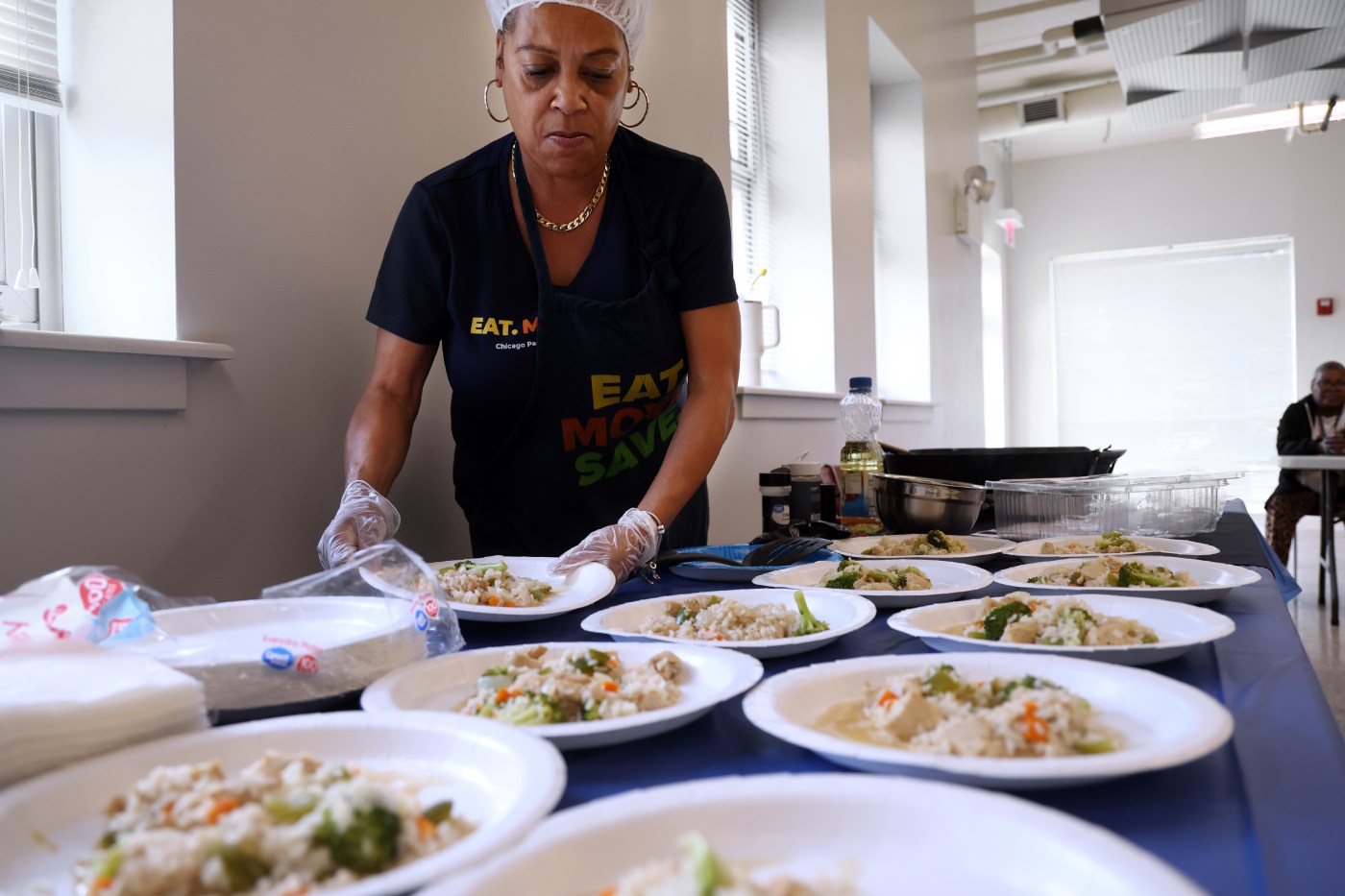Education
Illinois SNAP-Ed Program Faces Closure After Federal Funding Cuts

The Supplemental Nutrition Assistance Program Education (SNAP-Ed) initiative in Illinois is set to be eliminated due to significant federal funding cuts under the recent tax legislation signed by President Donald Trump. This decision has left thousands of low-income residents, particularly in Chicago, facing the loss of vital nutrition education resources.
In a classroom at a low-income housing complex in Roseland, residents engaged in a cooking demonstration led by nutrition educator Denetria Adams. As participants learned about healthier cooking options, an atmosphere of community and support was palpable. However, this program, which has operated for over three decades, is now on the brink of closure, with funding officially running dry on September 30, 2025.
The SNAP-Ed program has played a crucial role in addressing health disparities in Chicago, partnering with local organizations to provide education on nutrition and cooking. According to Daylan Dufelmeier, director of the Chicago Partnership for Health Promotion at the University of Illinois Chicago, the abrupt funding cuts have been devastating. “It was an absolute gut punch,” he stated, emphasizing the program’s importance in improving community health.
The cuts are part of a broader trend under the current administration, which has seen billions slashed from federal food benefits and reductions in Medicaid access. For many participants, like Tammy Spivey, who has relied on food stamps and disability support for years, the impact is deeply personal. “They’re cutting out the wrong things,” Spivey expressed, highlighting the necessity of such programs for maintaining nutrition and health.
SNAP-Ed not only offers cooking classes but also provides resources such as food access directories and advocacy efforts. Staff estimate that the program helps prevent over 5,000 cases of obesity and nearly 600 instances of food insecurity in Illinois each year. Research from nonprofit organization Altarum suggests that every dollar invested in SNAP-Ed yields between $5.36 and $9.54 in health care savings, underscoring its economic and social value.
Despite these benefits, the Republican-led House Committee on Agriculture has labeled the program ineffective since its inception in 1992, leading to the current funding cuts. The state received nearly $20 million this fiscal year, with a significant portion allocated to local universities for program implementation. The loss of funding will result in approximately 250 staff members losing their jobs, further straining community resources.
Each year, SNAP-Ed reaches around one million residents through collaborations with over 1,800 community partners. With an estimated 1.9 million people relying on SNAP benefits in Illinois, the implications of this program’s shutdown are far-reaching. Residents at Mercy Housing, like Alma Watson, expressed gratitude for the education they received, which included practical cooking skills and access to fresh produce. “People don’t know, and some people really need it. Like me,” Watson noted, emphasizing the program’s impact on her life.
The impending closure of SNAP-Ed has left many educators, including Adams and her colleague Christine Davis, concerned about the void it will create in their communities. Davis pointed out the lack of access to healthy food options in the area, often referred to as food deserts, where residents have limited choices.
As the program prepares for its final days, participants continue to enjoy classes and the camaraderie they foster. After a recent cooking session, the room filled with laughter as residents shared meals prepared together, a reminder of the community spirit that SNAP-Ed helped cultivate.
The long-term consequences of these funding cuts may not be immediately visible, but the effects on public health and community cohesion will be profound. As Dufelmeier stated, “The impacts from the cuts to our programs you may not see next week, but it’s a long-term impact.”
-

 Technology5 months ago
Technology5 months agoDiscover the Top 10 Calorie Counting Apps of 2025
-

 Technology3 weeks ago
Technology3 weeks agoOpenAI to Implement Age Verification for ChatGPT by December 2025
-

 Health3 months ago
Health3 months agoBella Hadid Shares Health Update After Treatment for Lyme Disease
-

 Health4 months ago
Health4 months agoAnalysts Project Stronger Growth for Apple’s iPhone 17 Lineup
-

 Health4 months ago
Health4 months agoErin Bates Shares Recovery Update Following Sepsis Complications
-

 Technology5 months ago
Technology5 months agoDiscover How to Reverse Image Search Using ChatGPT Effortlessly
-

 Technology3 months ago
Technology3 months agoElectric Moto Influencer Surronster Arrested in Tijuana
-

 Technology5 months ago
Technology5 months agoMeta Initiates $60B AI Data Center Expansion, Starting in Ohio
-

 Technology2 months ago
Technology2 months agoDiscover 2025’s Top GPUs for Exceptional 4K Gaming Performance
-

 Technology5 months ago
Technology5 months agoRecovering a Suspended TikTok Account: A Step-by-Step Guide
-

 Health5 months ago
Health5 months agoTested: Rab Firewall Mountain Jacket Survives Harsh Conditions
-

 Lifestyle5 months ago
Lifestyle5 months agoBelton Family Reunites After Daughter Survives Hill Country Floods





















